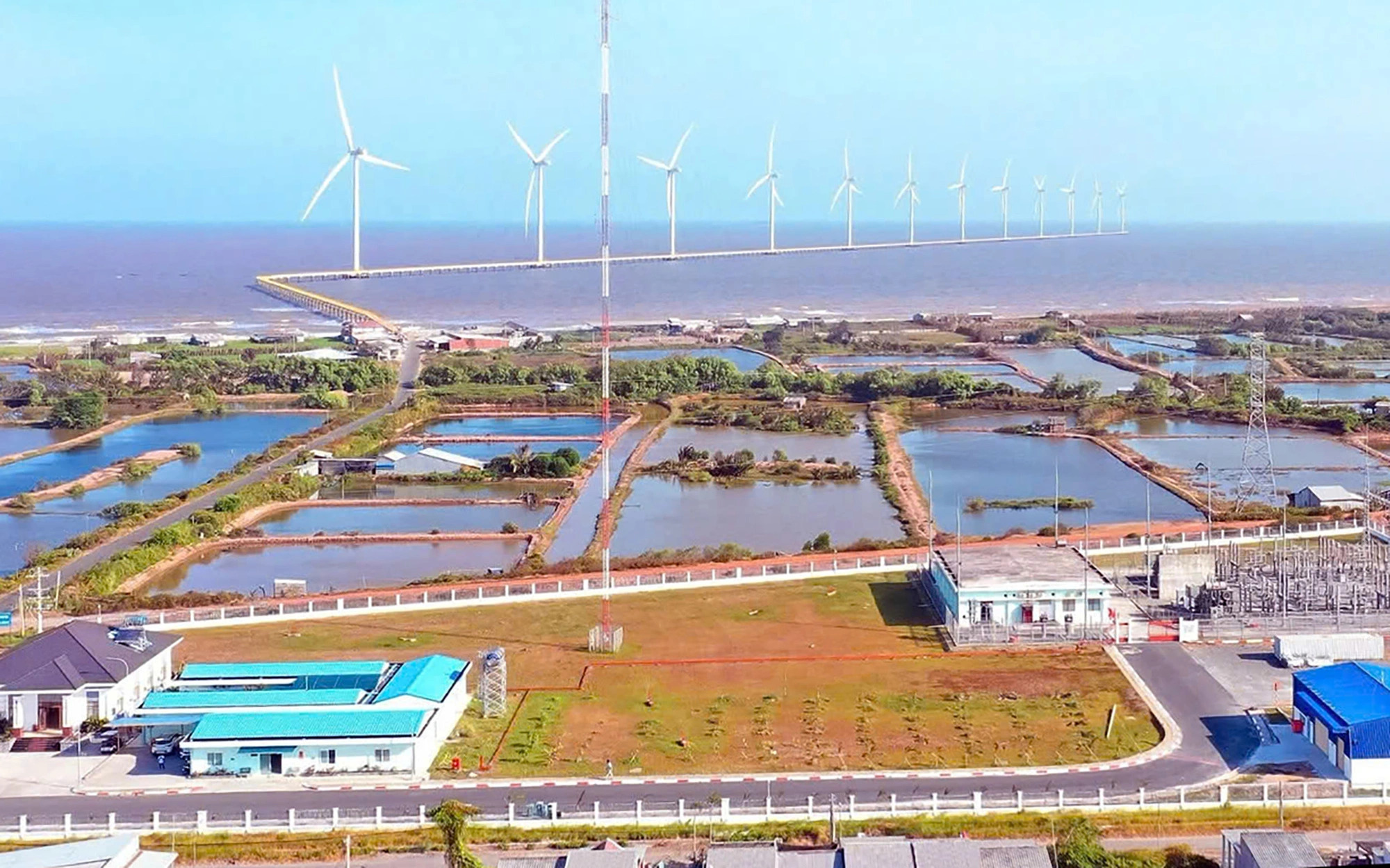Julien Guerrier, Ambassador of the European Union (EU) to Vietnam, said that significant international energy investments are poised to enter Vietnam during his recent business trip to the Mekong Delta.
From Thursday through Friday last week, delegations from the Ministry of Industry and Trade and the EU visited Can Tho City and Tra Vinh Province, where they discussed the country’s renewable energy opportunities and challenges while inspecting local energy projects.
Speaking to Tuoi Tre (Youth) newspaper, Ambassador Guerrier highlighted Vietnam’s current energy challenge to fulfill three ambitious goals simultaneously, including achieving net-zero emissions by 2050, ensuring sufficient power supply for a fast-growing economy, and keeping energy costs affordable.
He said projections indicate that Vietnam’s electricity demand will double by 2030, underscoring renewable energy as the key to addressing this challenge.
While Vietnam has successfully tapped into hydropower, Guerrier emphasized the need to expand into solar and offshore wind power.
To unlock its enormous potential for solar and wind power, Vietnam needs the right policies to attract private and public investment.
The EU diplomat expressed confidence that Vietnam could see a surge in solar and offshore wind projects, provided it establishes a robust legal framework.
With its geographic advantages, Vietnam is well-suited to not only meet its domestic energy needs but also export energy to other Southeast Asian countries.
Acknowledging this potential, the EU is actively supporting the development of an interconnected power grid across ASEAN nations.
He put forward some policy recommendations to accelerate renewable energy development in Vietnam, such as upgrading state utility Vietnam Electricity’s power grid to absorb renewable energy capacity, providing clear regulations on exploration and exploitation rights for wind power projects, and establishing transparent pricing mechanisms so investors can predict electricity sales rates.
He also highlighted the potential of Vietnam's direct power purchase agreement decree, approved by the central government in July. This fiat enables private companies to sell power directly to buyers, enhancing investor confidence.
Ambassador Guerrier urged further energy collaboration between Vietnam and the EU, spotlighting a recently signed deal with the Vietnamese Ministry of Finance to increase funding for the EU’s Water and Natural Resource Management Facility to €34 million ($35.6 million) from €20 million (US$20.9 million).
He welcomed local initiatives and pledged EU support for more projects through partnerships like those with the French Development Agency.
Deputy Minister of Industry of Trade Nguyen Hoang Long described Vietnam’s net-zero commitment by 2050 as an ambitious and courageous step toward a green and clean future.
Long elaborated that achieving this goal requires decisive action and international collaboration, specifically with the EU.
In late 2022, Vietnam signed the Just Energy Transition Partnership agreement with G7 nations. As per the deal, the G7 countries and other partners pledged $15.5 billion in funding over 3-5 years to support Vietnam’s energy transition.
Long said that the EU leadership has been critical in coordinating this effort.
The Ministry of Industry and Trade has developed programs to utilize funding sources such as official development assistance loans, green finance, and low-interest loans.
Technology transfer and renewable energy development projects are also underway to accelerate the transition.
During the visit, the delegations toured some key energy projects in Can Tho and Tra Vinh.
These included a rooftop solar system at the De Heus Can Tho aqua feed mill, which has a capacity of 458kWp and is expected to reduce carbon dioxide emissions by 470 metric tons annually, an EU-funded rural electrification project in Can Tho’s Thoi Lai District, and the Korea-Tra Vinh wind power plant.
Like us on Facebook or follow us on X to get the latest news about Vietnam!


















































